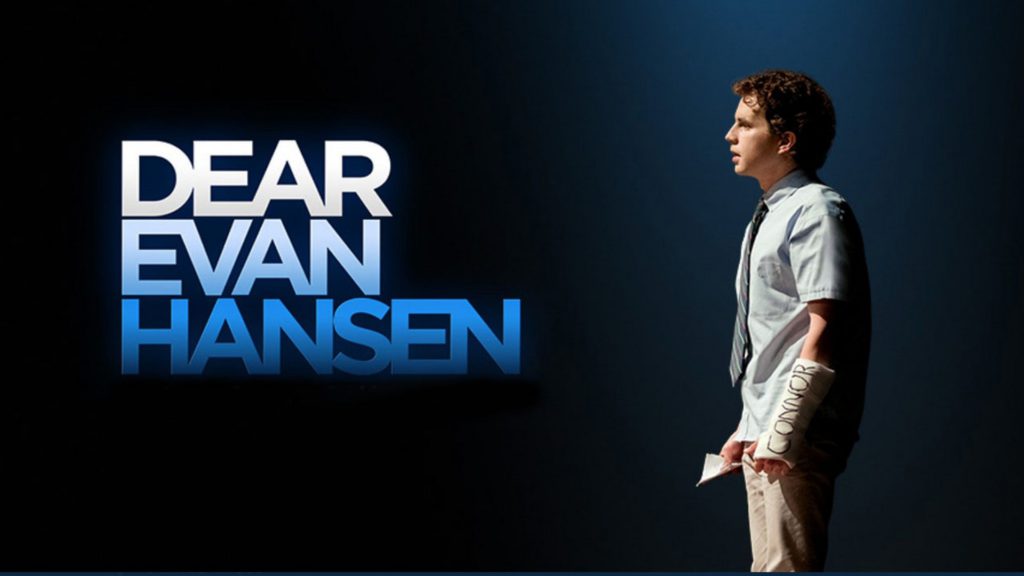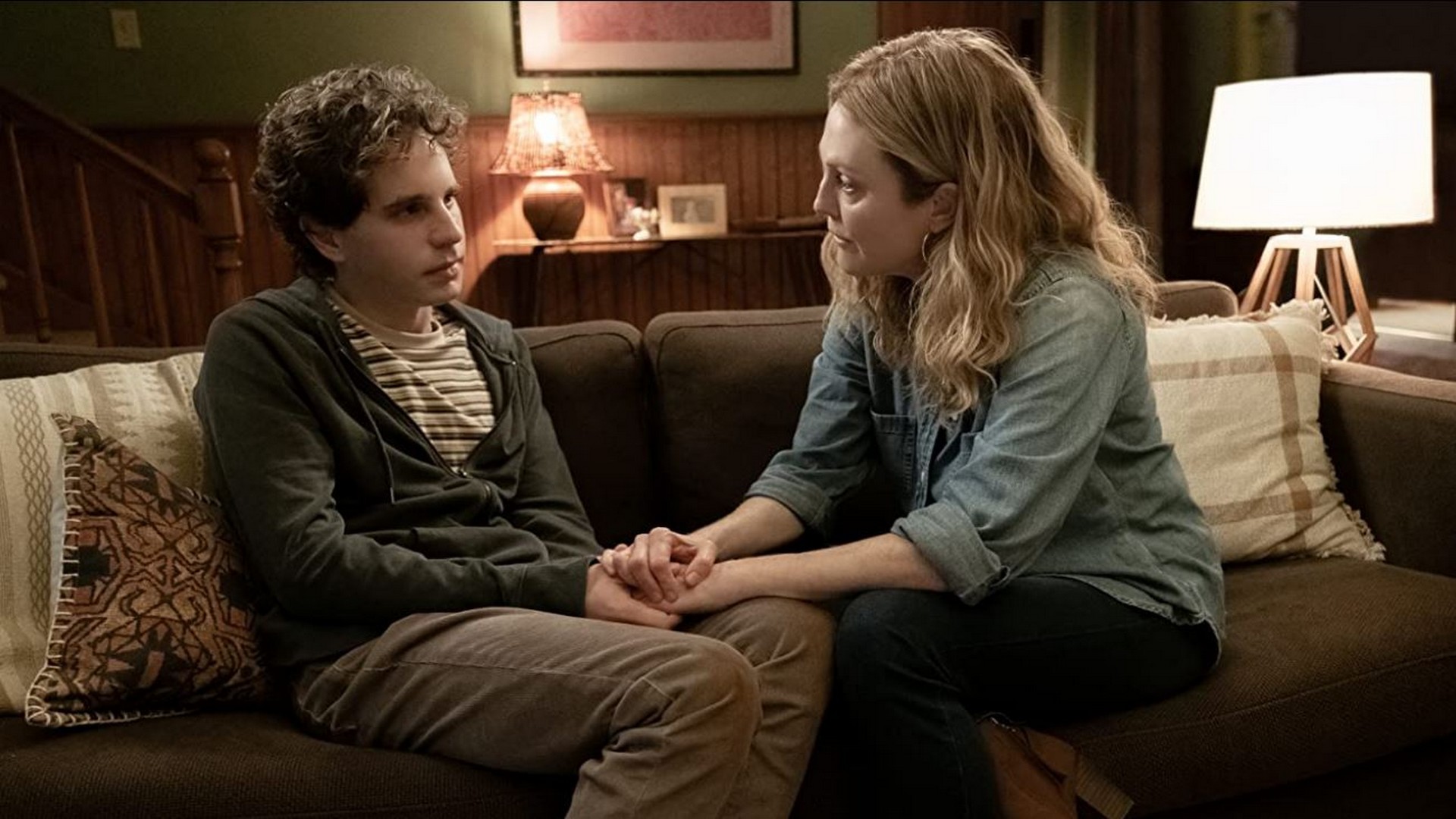
Dear Evan Hansen. Three words that will affect the person who wrote them, a family clutching to the idea of them, and an entire generation caught in the wake of the movement caused by them. Inspired by the original Musical of the same name, Universal have adapted the screenplay with a revised vision for the silver screen. Directed by Stephan Chbosky, the author of the acclaimed “Perks of Being a Wallflower,” who also directed the film adaptation under the same name, is no stranger to handling delicate topics surrounding mental health and the devastating effects that can stem from them, and as an early disclosure, this review will be covering topics surrounding suicide, manipulation, and trauma.
Evan Hansen, played by Tony Award-winner Ben Platt, is reprising his own role as the original Evan Hansen in the Broadway musical. Opening up the movie with an endearing rendition of “Waving Through a Window” highlights the foundations of a high school student, wrought with severe anxiety who desperately wants to be seen. His demeanour speaks volumes louder than he could shout as he fights with himself to keep a steady hand and right his broken posture. A rolling montage showcases a collection of medication, a broken arm in a cast, an awkward car ride with his overworked Mother, and the bustling school, all of which plague Evan’s life.
While still retaining the musical elements of the play, a more grounded and realised version of the world is explored through traditional movie-based storytelling. Toiling away in his locker, Evan witnesses Connor Murphy, played by Colton Ryan, being harassed by other school kids in a manner that shows this isn’t a rare occurrence. Being the bumbling mess that is Evan, he awkwardly smiles at Connor trying to offer support. Unfortunately, Connor didn’t see it that way and lashed out at Evan. Seeing this altercation, Zoey, played by Kaitlyn Dever, felt compelled to comfort Evan. So far he had only ever dreamed of speaking with her as he often admired her from afar, but given that Connor happens to be her brother, she knows all too well how it feels to be berated by him. As expected, Evan runs from the encounter and falls back onto a therapist’s assigned task of writing himself a letter.

This letter addressed to himself, is the catalyst of the entire movie as he pours his struggling thoughts into the letter about how he wished he could speak to Zoey and that he could disappear tomorrow and nobody would care. During this moment Connor attempts to make amends with Evan by signing his cast so they could pretend that the two outcasts had a friend but after finding the letter, perceiving it as a cruel joke at his expense, he disappears with the letter in hand. Evidently, this was one of his last living moments as he took his own life with the only thing being found on his person, being a letter addressed “Dear Evan Hansen”
So far, each individual moment was laying the foundation for the mental anguish that the viewers were about to endure. A Mother caught in denial with an overbearing nature clutches to the idea that Evan truly was Connor’s friend. Played by Amy Adams, Cynthia Murphy is desperate to change the narrative of her lost Son to her Husband and Daughter who have very different opinions. Zoey, a younger sister who was manipulated and tormented by Connor is now the “dead guy’s sister” to everyone and is struggling to feel any emotion for her brother. Larry, the Step-Father played by Danny Pino, is a well-off businessman who succeeded in everything except saving Connor, who he raised from the young age of three. Through sheer anxiety, Evan leans into the narrative that this stranger was indeed his best friend and even goes as far as fabricating a trail of emails.
Evan, who has been struggling to be seen, is now centre stage after going viral on social media for a blatantly misleading speech about his fake friendship. The class president who exceeds at everything she puts her mind to has taken notice. Alana Beck, played by Amandla Stenberg, was a hopeful and integral role in the movie as her solo, “The Anonymous One’s”, shows the other side of mental health issues that are often overlooked. Unless she maintains her busy lifestyle, her own crushing thoughts would cripple her, but the results only show a driven and happy individual. Not wanting anyone to deal with her constant battle she creates a movement behind Connor’s suicide, dragging Evan into the mix for social media clout.

With each detail added to the lie, it felt like a punch in the stomach for the viewer watching as he dug himself deeper and deeper. What may have been an innocent venture at first spirals into a manipulative and questionable tornado of emotions. Evan attempts to change Zoey’s thoughts of her abusive brother by telling fake stories of how he secretly cared, which ultimately only built her up to fall twice as hard. After all, a wrong deed, even done for the right reasons, will only compound the fallout when it is revealed.
While Evan is at home it is often a dark and crammed environment with no one at home but himself, however at the Murphy’s he is in large, bright, and open environments with a family that treats him like the Son they no longer have, and his fear of losing that only creates more of a divide between Evan and his Mother. The more he lied the more he benefits and the sloppier he gets, leaving a trail of bread crumbs for others to deconstruct this false narrative. In the beginning, I only felt compassion for Evan, however, the more the story unfolds, the more it shapes his character into a less than desirable individual.
In contrast, it was a clever inflection on how his own desperation brought out the worst in him and his guilt began to escape him. In an attempt to frame a more positive outcome of the story, the movie deviated from the musical counterpart by outlining that anyone can inspire their own path of self-discovery and redemption, even if it feels like an unfounded outcome from an outsider’s perspective. While his actions will reap some considerable consequences, they needed to highlight that you should still reach out for help. The moment-to-moment emotional pay-offs outweigh the oversights for the negative portrayals and the musical numbers were evenly paced out for a balanced experience. Whether remembered for the right or wrong reasons, Dear Evan Hansen is an insightful blend of musical and movie with the right intentions to raise awareness of mental health.

The Good
- Excellent casting across the board, even with Ben’s age taken into account
- Provocative themes insight many emotions
- Musical numbers were impactful
- Lighting and set designs mirrored the mental state of Evan
The Bad
- The fallout of the negative aspects of Evan Hansen were underwhelming
- Long run time leaves a few scenes long in the tooth








